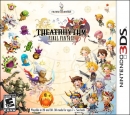theRepublic said:
noname2200 said:
Problem No. 1: what about software that physically doesn't permit second hand sales?
How does this case apply to mobile apps, where of course there is no resale/trade ability? We don't know. On the one hand, a straightforward analysis might be that mobile apps are software just like Oracle's program in the case and therefore that the first purchaser of a mobile app should be able to sell it to a second purchaser (even if technically the ability to do that doesn't exist…yet). On the other hand, there is at least an argument that the first purchaser of an app shouldn't have the ability to resell the app to a third party due to this case, because when that first purchaser bought the app she would have had no technical ability – or even the expectation - of being able to sell it to a third party.
In other words, what I'm saying here is, if the software was never technically capable of being sold to a third party in the first place, does this case change anything really? The return might be, of course, that arguing about technical abilities isn't really the point: if the law says that mobile apps should be capable of being sold second hand, then the mobile platforms better do something about it.
Leaving mobile aside, the real problem area is where software easily could be made capable of second hand sales – but hasn't. Digital distribution platforms, for example, could in principle permit digital second hand sales (Green Man Gaming already does, for example) – so it will be interesting to see what impact this case has on them.
|
The article in the OP seems to disagree with the Gamasutra article on this point.
"'Therefore the new acquirer of the user licence, such as a customer of UsedSoft, may, as a lawful acquirer of the corrected and updated copy of the computer program concerned, download that copy from the copyright holder’s website.'
This means Steam, GOG, Origin, et al., NEEDS to supply a way to transfer the ‘right to download the game’ to the proper party. Whether this feature will include a nominal fee or not remains to be seen. Don’t be surprised if it does; the potential revenue to be made there is astounding. Here’s a hypothetical for you: Even if the fee is something around ten cents and it’s Euro counterpart, the volume alone could net Gabe and company quadrillions of dollars. Gorillians even."
Any thoughts on who is right? My thought is that Gamasutra missed that point, and the digital sellers will need to support used sales. I could be wrong though.
|
I'm inclined to agree with you. The Gamasutra arguement seems to be that resale of existing digital products should remain impossible because resales were not contemplated at the time of the original sale. That doesn't strike me as likely though, since the same arguement can be made in the usedSoft case, wherein resale etc. is strictly prohibited in the EULA. I don't know enough about European civil law to be more specific, though.
mantlepiecek said:
The difference between a used digital copy and a used physical copy is that the physical copy gets damaged with time, the digital copy remains the same, therefore there would be a true competition to the manufacturer himself. For someone like steam which has so many deals I can see it being unfair.
Then again the right to own stuff is also important. If you own it you can sell it makes sense, however don't expect this on PSN and XBL at all.
|
I'm inclined to think that the latter's right trumps the former's business model. I haven't done enough research to be sure yet, but I suspect that neither Sony nor Microsoft (or Nintendo, for that matter) will be able to exclude themselves from the scope of this ruling.
SamuelRSmith said:
Before you buy something, it is first the producer's property. If they want to put on obligations (such as not being able to resell) that you agree to, then the producer should be able to enforce those obligations. If you don't agree to those obligations, don't continue with the transaction. You have no right to play games, but that have property rights.
|
Thankfully, we don't live in a libertarian world. Regulations on sales and other property rights have existed for millenia, and for good reason. The First Sale question in particular was settled contrary to your beliefs over a century ago.*
I respect your right to cling to a vision of an ideal world where equal bargaining power between the parties always exists, but I'm personally delighted that this court at least does not subscribe to such.
*At least in the United States. I'm ignorant of Europe's history with same.
Jumpin said:
Well, considering they're asking something that isn't feasible, This's the end of convenient digital distribution in Europe. |
Why would it not be feasible?
crissindahouse said:
i wonder what is with the codes in retail games i have to use to play some parts of the games like we get nowadays to prevent the used market. since i buy the game and it is my own game int he future doesn't that mean they can't make these codes and have to let me sell the whole game to someone who has then the right to play the same game and not to pay 10 bucks to the publisher to get a new code for some parts of the game? would be the same logic, i own it after i used the code so it is my right to sell it to someone |
Good question. A liberal reading of the ruling would imply that your purchased DLC would follow the sale of the underlying product, but I'm guessing we'll need another court ruling in the future, since some publishers will doubtless start digging in their heels.
Lostplanet22 said:
Publishers could love it. Like Steam, sell your license and Steam will take 15% of the money. That is something you don't see with used copies.. |
That wouldn't be the publisher though, that'd be the distributor. And even then they'd prefer to get 100% of the money.


































































